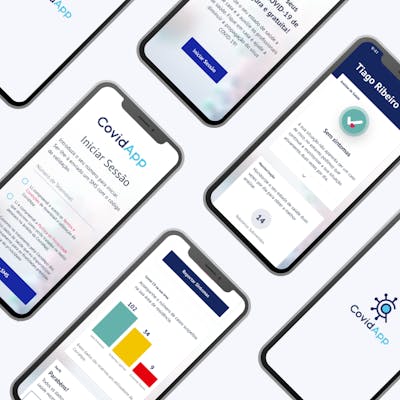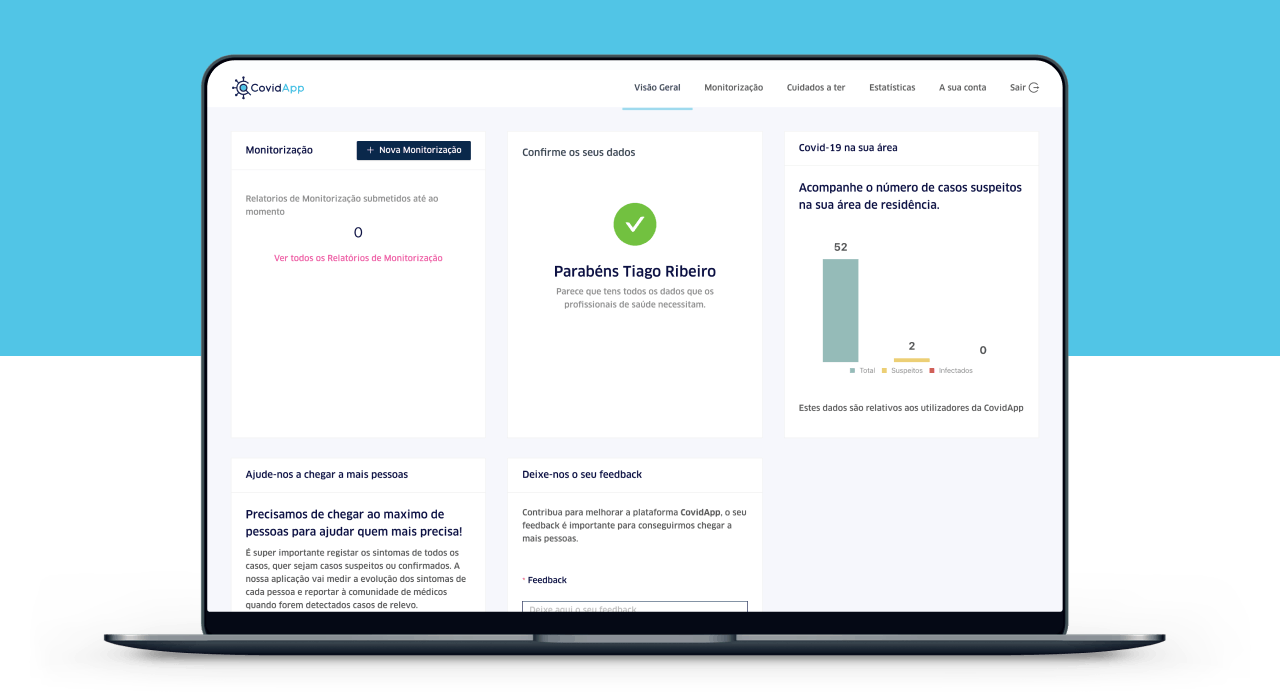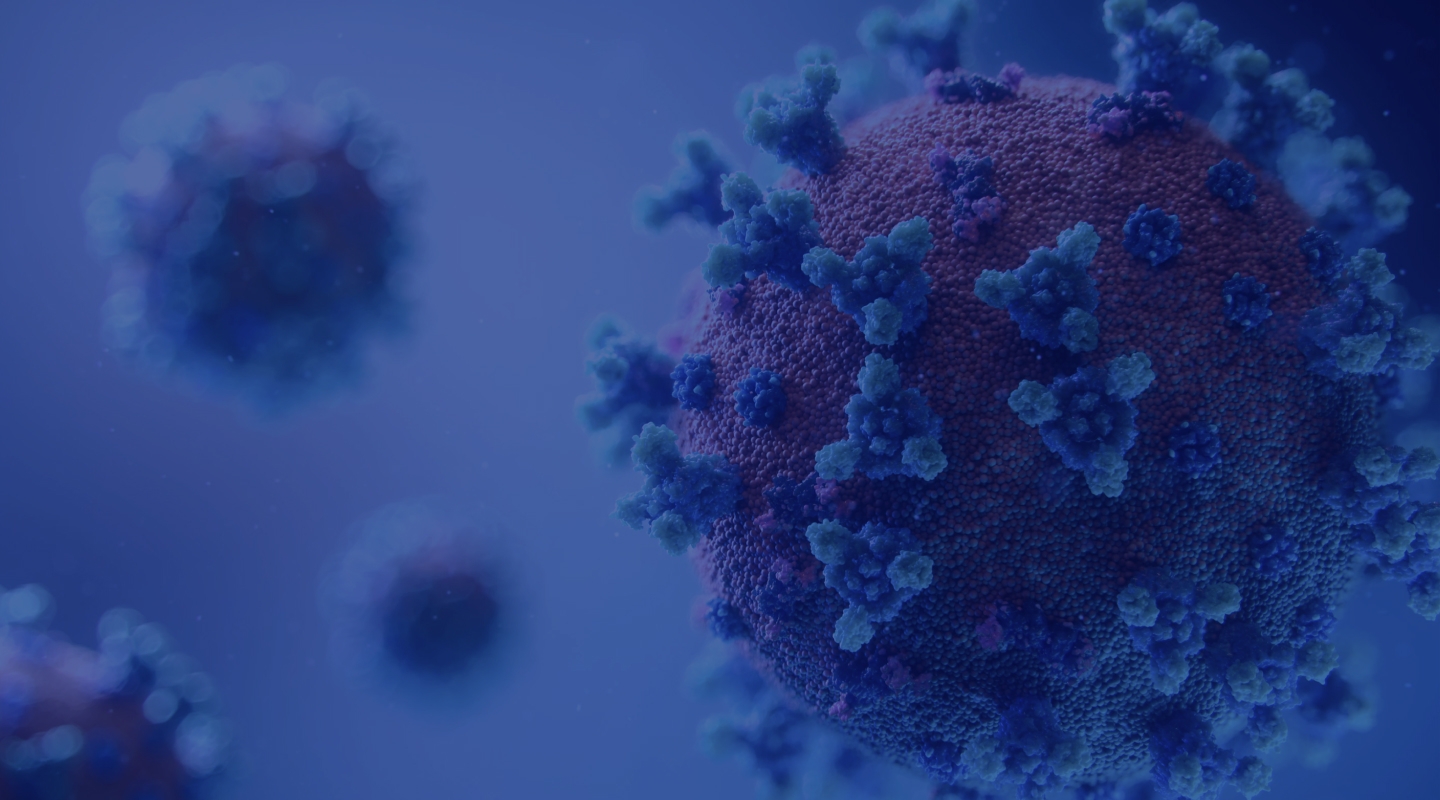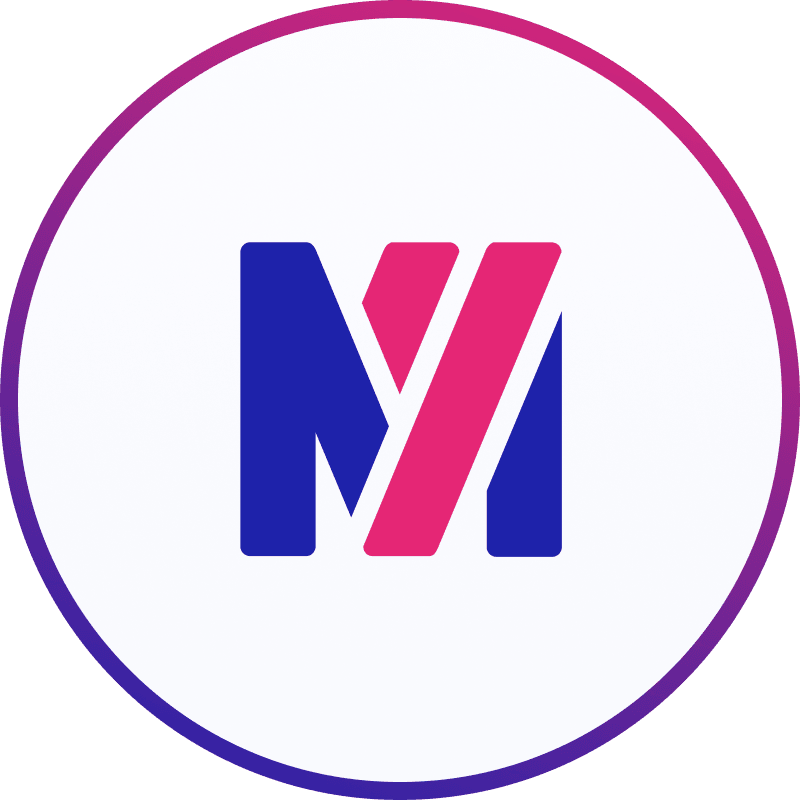CovidApp | Smart Epidemic Management App

The CovidApp platform was developed to help at-home patients and potentially infected citizens to monitor their symptoms and health during the SARS-COV-2 Pandemic. Working with a staff of medical doctors and FMUP, the Faculty of Medicine for the city of Porto, Mosano built an MVP in record time to allow doctors and reference personnel to track patients (and potential patients) health symptoms, predict when they need to be hospitalized using validated Machine Learning models, maintain an open communication channel between hospitals and end-users and allow the latter to receive remote diagnosis and alerts in time of need.
This is freeing up needed hospital capacity, relieving and protecting frontline hospital staff from dealing with known and potentially infected patients while still providing the necessary care and optimising for first-responder action in case of patient need.
The platform is designed to grow into a full-scale remote patient care management tool, using machine learning and remote diagnostics to allow hospitals to grow their own patient monitoring capabilities, during the pandemic management stage, as well as after.

Innovativeness & Differentiation
The solution sets itself apart from whats being done until now in a couple of different ways:
- Focus on security. All data is encrypted, anonymized for analytical purposes and only accessible to healthcare providers using their private access keys.
- Machine Learning first. Reported symptoms are run through a machine learning algorithm developed by the University of Porto to detect and feedback on patterns of symptoms that match those of patients with positive diagnosis for the disease in question. These self-reinforcement algorithms flag cases and clusters to doctors and public health officials who can then take action and communicate with those prospective patients directly.
- Assisted self-reporting. The platform allows users to report symptoms using medical devices, off-the-shelf consumer grade devices or through a manual self-assessment, which can be video assisted both through recordings and via live chat with a medical professional. The platform is evolving to integrate with consumer grade devices and respective APIs, which have been reported to offer warning signs of worsening health conditions.
- Focus on scaled, asynchronous healthcare. The platform allows at-home patients and doctors to share information asynchronously, it allows hospitals to communicate in a timely manner with groups of symptomatic patients, to broadcast information widely to at-risk groups, to detect early on when patients’ condition might be worsening, triggering an immediate response from frontline healthcare providers, thus removing communication barriers and maintaining a live feedback loop that scales to the capacity that the healthcare system can support in emergency situations, keeping the most at-risk patients in full focus
- User experience. The ability to support communication via SMS and recorded or live phone calls, alongside video and live communication channels allows users with diverse levels of technical aptitude to quickly be onboarded into the platform and start reporting symptoms. Guided onboarding and assistance, educational content, close support from medical staff and clear information hierarchy set this platform apart and make it a fundamental instrument in scaling healthcare for everyone.
Tech Stack
Regarding the tech stack, Mosano choose the following technologies and languages:
- ReactJS, for the Frontend, since we have a lot of experience with this library.
- GoLang, for the Backend, since we needed a reliable and very fast computing language, and at the same time a language that wasn't resource hungry.
- Hasura Engine, to provide a realtime GraphQL API to orchestrate communication between the API and DataBase.
- PostgreSQL, since its one of the most battle tested database systems that ensures all the features required.
Future
With the creation of CovidApp, Mosano ventures into turning unique internal technology, access to exclusive distribution channels and academia and industry partnerships into a technological solution that not only is already empowering reference healthcare institutions in their response to a global crisis, but can become a fundamental part of hospital-to-patient relationship management, in a secure, intelligent and future-proof manner.



